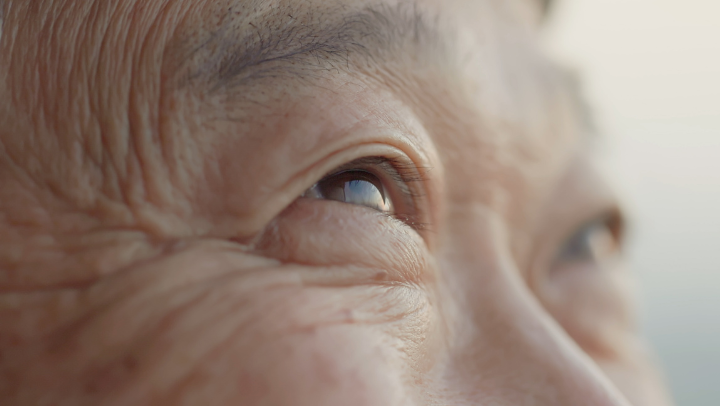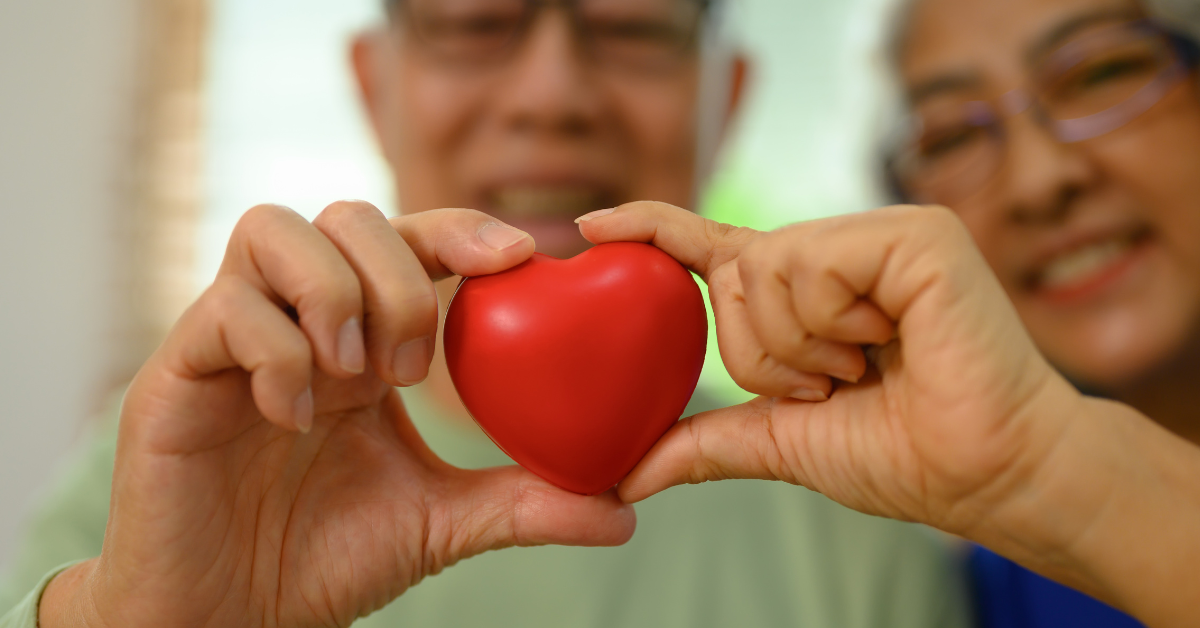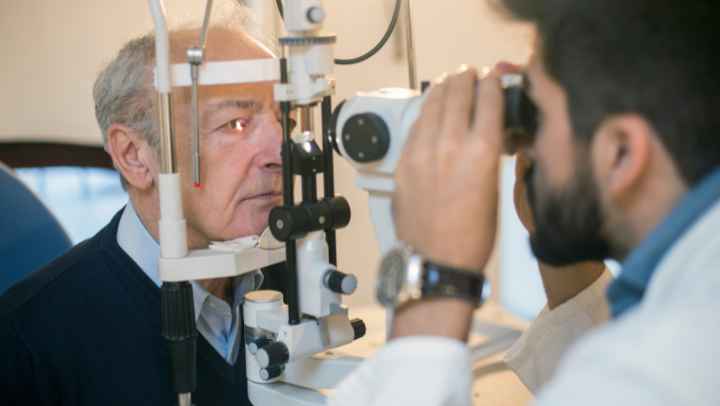Your loved one’s eye health needs protection when transitioning to a new home. A complete approach to senior eye health combines daily care, proper nutrition and environmental factors. Age-related vision changes can be challenging, but with proper care and attention, you can manage many conditions.
This piece covers everything about eye care for seniors. You’ll find daily routines and nutrition guidelines that help maintain optimal vision health for your loved ones in senior living communities in Sanford, FL.
Common Eye Health Challenges in Seniors
Our eyes change a lot as we age and these changes can make daily life harder. When we understand what’s happening to our vision, seniors can stay independent and enjoy a better quality of life.
Glaucoma hits adults over 65, particularly hard and leads to loss of side vision. Most people develop cataracts after 45, which cloud their vision and make focusing difficult. The eyes also get drier because tear glands don’t work as well as they used to, making them feel uncomfortable.
Impact on daily activities
Poor vision makes it hard for seniors to go about their day. It also creates problems when they need to take medications, read small text or care for themselves. People who can’t see well are more likely to fall and hurt themselves. But, doctors can treat many of these eye problems when caught early.
You can protect your vision better when you spot problems early. Here are key signs that something might be wrong:
- Blurred or cloudy vision
- Dark spots in the visual field
- Difficulty seeing in low-light conditions
- Colors appear less vibrant
- Straight lines looking wavy
Vision problems can indicate other health issues, such as diabetes, high blood pressure or heart disease. Regular eye check-ups help seniors stay healthy and independent.
Daily Eye Care Routine for Seniors
A consistent eye care routine helps seniors maintain healthy vision. The original daily eye care routine becomes crucial for residents in senior living communities in Sanford, FL, who want to prevent eye problems.
Morning eye care steps
Your day should start with a gentle eye cleaning using a clean, warm washcloth. Clean hands are necessary to apply morning eye drops if they’re prescribed. People managing chronic conditions need to take their medications at the same times each day to make them work.
Evening eye care practices
The evening routine should include removing eye makeup and avoiding eye rubbing. Your eye care professional might recommend artificial tears for dryness. Good lighting choices help reduce eye strain – soft white LED bulbs work better than fluorescent lights.
You need to pay attention to these details for safe eye drop use:
- Clean your hands well with soap and water
- Keep the bottle tip sterile and don’t touch your eyes
- Keep your eyes closed for 30 seconds after applying drops
- Throw away opened bottles after 28 days
- Store drops in a clean place with the proper temperature
Seniors with arthritis or limited dexterity can use eye drop guides or assistive devices. You should wait at least five minutes between different types of drops so they can absorb properly. Your eye drops should come from trusted retailers to ensure they’re safe.
Essential Eye Care Habits for Seniors
Adults over 40 should get their eyes checked every one to two years. Seniors aged 65 and above need yearly detailed eye examinations. These check-ups detect conditions early, often before symptoms become noticeable. Many eye conditions show no symptoms at first, which makes routine exams vital to maintain clear vision.
Nutrition and Eye Health
Good nutrition helps seniors maintain healthy eyes. Studies reveal that the proper nutrients can lower the risk of age-related eye diseases by up to 25%. The right mix of nutrients keeps your eyes working at their best. Here’s a complete guide to the nutrients you need and where to find them:
| Nutrient | Benefits | Primary Sources |
| Lutein & Zeaxanthin | Protects retina from harmful light | Dark leafy greens, corn, eggs |
| Vitamin C | Reduces cataract risk | Citrus fruits, bell peppers |
| Vitamin E | Guards against cell damage | Nuts, vegetable oils |
| Omega-3 Fatty Acids | Supports retinal function | Salmon, tuna, sardines |
| Zinc | Essential for retinal health | Red meat, oysters |
Hydration is important. Your body needs proper hydration to produce tears and keep your eyes comfortable. You should drink 8-10 glasses of water each day. Fruits with high water content, like watermelon and oranges, help you meet daily hydration needs. Good hydration helps you:
- Support natural tear production
- Protect against dry eye symptoms
- Maintain clear vision throughout the day
A diet with fresh fruits, vegetables, lean proteins and healthy fats provides complete eye health support.
Eyes on the Future: Protecting Vision
Your daily eye care routine should include regular check-ups with eye care professionals. Your eyes need proper nutrients and hydration to stay healthy. Dark leafy greens, fish and colorful fruits have essential vitamins and minerals that fight age-related eye conditions.
For customized eye care strategies and broader medical support, Marina Isle Waterfront Assisted Living is here for you. Our residents benefit from our dedicated in-house healthcare and the expertise of specialized third-party medical vendors who regularly visit our facility. To learn more about our comprehensive vision care and medical services, call (407) 499-7300.
Simple steps today will keep your vision strong for years. Eye health management might initially feel daunting, but these guidelines will protect your loved one’s precious gift of sight in their senior years.





